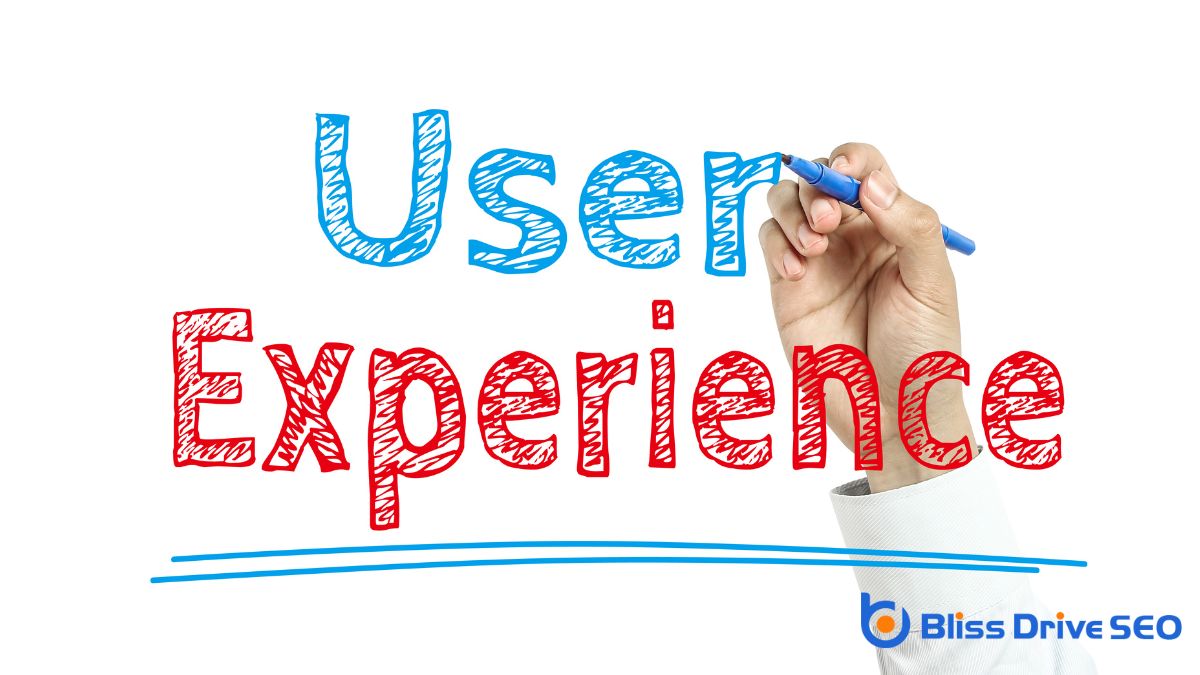Digital Marketing Services
Learn More About Us

You're probably wondering if Google really allows SEO and what the catch might be. The answer isn't as straightforward as a simple yes or no. Google does permit SEO, but it comes with strings attached—those strings being ethical practices that enhance user experience and content quality. It's a balancing act between creativity and compliance with Google's ever-evolving guidelines. So, how do you navigate this digital landscape without crossing into forbidden territory? There's a lot more to uncover about Google's approach to SEO and the fine line between what's allowed and what's not.

When you immerse yourself in understanding Google's mission, it becomes clear that their overarching goal is to organize the world's information and make it universally accessible and useful. This isn't just a corporate motto; it's a guiding philosophy driving every product and service they offerThe specific product or service being promoted by affiliates..
You might wonder how this impacts your interaction with Google, especially if you're curious about how they manage the vast amounts of data flowing through their systems daily.
By focusing on accessibility and usefulness, Google aims to break down barriers that prevent people from accessing information. You'll notice this in their search engine, which aims to deliver the most relevant results quickly. Their mission emphasizes the importance of all users finding what they need effortlessly, whether it's a local coffee shop or a scholarly article.
Google's commitment to organizing information means they're constantly evolving, using advanced algorithms and technology to sort through data efficiently. As you engage with Google's services, you're part of a global ecosystem benefiting from their mission.
When you're optimizing your website for search engines, it's essential to follow Google's SEO best practices. Avoid black hat techniques that might promise quick results but could leadA potential customer referred by an affiliate who has shown interest in the product or service but h... to penalties. Focus on creating quality content that both users and search engines will appreciate.
Understanding Google's SEO best practices is essential for anyone looking to improve their website's visibility. These guidelines help ensure that your content aligns with what Google's algorithms favor, leading to better rankings and more traffic. Google wants you to create content that provides value to users, so focus on quality rather than trying to game the system. By following Google's best practices, you can enhance your site's performance and safeguard it from potential penalties.
To evoke a deeper connection with your audience, consider these crucial practices:
Avoiding black hat techniques is crucial if you want to maintain a solid standing with Google and avoid penalties. These unethical SEO methods might promise quick results, but they pose a risk of long-term damage to your website's reputation. By understanding what black hat techniques involve, you can effectively protect your site from Google's penalties.
First, acquaint yourself with tactics like keyword stuffing, cloaking, and link schemes.
Instead, adhere to ethical practices that align with Google's guidelines. Produce natural and relevant content that resonates with your audience and focus on cultivating genuine relationships for backlinksLinks from other websites pointing to your website, crucial for SEO.. Google values honesty and openness, so concentrating on these principles guarantees long-term success.
Quality content is the cornerstone of effective SEO and aligning with Google's guidelines. When you focus on creating content that's valuable, engaging, and relevant, you're not just appealing to users but also to search engines. Google's algorithms prioritize content that meets these standards, making it crucial for your website's success. By ensuring your content is of high quality, you improve user experience and boost your search rankings.
Consider the following aspects of quality content that can evoke strong emotions in your audience:
In the world of search engine optimization (SEO), distinguishing between white hat and black hat techniques is essential for success. White hat SEO refers to ethical practices that align with search engine guidelines, focusing on improving user experience and providing high-quality content. When you use white hat techniques, you're building a long-term strategy that involves keyword researchThe process of finding and analyzing search terms that people enter into search engines., quality content creation, and acquiring legitimate backlinks.
On the other hand, black hat SEOUnethical SEO practices that violate search engine guidelines. involves manipulative tactics aimed at tricking search engines into ranking a site higher. These techniques may include keyword stuffing, cloaking, and using link farms. While they might deliver quick results, they can lead to penalties from search engines, causing your site to drop in rankings or even get banned.
Understanding Google's algorithm updatesChanges made by search engines to their ranking algorithms. is essential for anyone involved in SEO. These updates can impact your site's visibility and ranking. Google frequently adjusts its algorithms to provide users with the most relevant and high-quality search results. As someone traversing the SEO world, I know keeping up with these changes is important.
When Google rolls out an algorithm update, it can evoke a range of emotions:
You should remember that Google's primary goal is to enhance user experience. This means prioritizing sites that offer valuable, relevant content while discouraging manipulative SEO practices.
Although staying on top of algorithm changes might seem challenging, it's a crucial part of SEO success. Google's updates often focus on improving search result quality, so aligning your strategies with these goals will help you maintain or improve your rankings.
Keep learning, stay adaptable, and always aim to provide the best user experience possible.
Why is high-quality content so important in the world of SEO? Simply put, it's the foundation of any successful SEO strategy. When you create valuable, engaging content, you're doing more than just filling pages; you're meeting the needs of your audience. High-quality content answers questions, solves problems, and provides insights that your readers are actively searching for. This not only keeps visitors on your site longer but also encourages them to return.
Think about it: Google's primary goal is to deliver the best possible results for its users. When your content aligns with this goal, it's more likely to rank higher in search results. Google evaluates the relevance and quality of your content by considering factors like originality, depth, and clarity. If your content excels in these areas, it's more likely to earn a favorite spot in the search engine rankings.
Moreover, engaging content promotes sharing and interaction, which signals to search engines that your site is credible and trustworthy. Don't underestimate the power of quality content. It builds your reputation, attracts organic trafficVisitors who come to a website through unpaid search engine results., and lays the groundwork for a strong online presence. Focus on creating content that truly resonates with your audience.
While quality content is the backbone of SEO, backlinks act as the lifeblood that pumps authority and credibility into your site. They're like votes of confidence from other websites, signaling to search engines that your content is valuable and trustworthy. When a reputable site links to yours, it doesn't just drive traffic; it boosts your ranking potential.
So, why should you care about backlinks? Because they help:
To effectively harness the power of backlinks, focus on acquiring links from relevant and authoritative websites in your nicheA specific segment of the market targeted by affiliates to promote products or services.. Quality trumps quantity; a few high-quality backlinks are far more advantageous than numerous low-quality ones. Avoid tactics like buying links or using spammy directories, as these can harm your site's reputation.
Instead, create compelling content that naturally attracts links and engage in genuine outreach to build a robust backlink profile.

When it comes to SEO, user experience plays an essential role in determining your site's success. Google's algorithms are designed to prioritize websites that deliver a seamless and engaging experience for visitors. If your site is easy to navigate, loads quickly, and provides valuable content, you're more likely to rank higher in search results. Remember, it's not just about attracting visitors—it's about keeping them engaged and encouraging them to return.
You should focus on creating a clean, intuitive design that guides users effortlessly through your site. Confirm that your content is relevant, informative, and tailored to your audience's needs.
Don't overlook the importance of mobile optimizationDesigning and formatting web content to ensure it performs well on mobile devices., as more people are browsing on their phones than ever before. A responsive designA web design approach that makes web pages render well on a variety of devices and window or screen ... will help you reach a wider audience and improve your site's overall performance.
Page speedThe time it takes for a webpage to load, affecting user experience and conversion rates. is another vital factor. If your site takes too long to load, users may abandon it, increasing your bounce rateThe percentage of visitors who leave a website after viewing only one page. and negatively impacting your rankings. Optimize images, leverage browser caching, and reduce server response times to enhance speed. By prioritizing user experience, you're not just appeasing Google's algorithms—you're building trust and loyalty with your audience.
Google's suite of Webmaster Tools is essential for anyone serious about enhancing their site's search performance. These tools offer crucial insights that help you comprehend how Google perceives your website, making it simpler to optimize your content for improved visibility. When you explore these resources, you're not merely speculating; you're making informed decisions based on actual data.
With Google's Webmaster Tools, you can:
These resources enable you to take charge of your site's SEO, providing you with a competitive advantage. Grasping and utilizing these tools means you're not just wishing for better rankings; you're actively striving toward them.
Embrace these insights and observe your site flourish in search results. Seize control of your SEO journey with confidence.
When you're optimizing your website for search engines, it's easy to fall into common traps like keyword overuse, which can hurt your ranking.
Don't overlook mobile optimization, as a non-responsive site can drive away potential visitors.
Additionally, focus on quality over quantity in link buildingThe process of acquiring backlinks from other websites. to avoid negative impacts on your site's credibility.
Many website owners make the mistake of excessively using keywords, thinking it will boost their search rankings. They stuff keywords into every corner and crevice of their content, believing this will attract Google's attention. However, this practice, known as "keyword stuffing," can harm your site's ranking instead of aiding it. Search engines are smarter than ever; they recognize when you're attempting to manipulate the system, and they don't appreciate it.
When you excessively use keywords, your content can lose its natural flow, making it challenging for readers to engage with it. You might think you're optimizing, but you're actually driving potential visitors away. Here's what you risk by excessively using keywords:
Instead, focus on creating valuable, user-friendly content that naturally integrates keywords. Write for your audience first, and let SEO enhancements follow. This approach guarantees your site remains appealing to both search engines and visitors.
Mobile users dominate the internet landscape, and ignoring mobile optimization can severely hinder your SEO efforts. When you don't optimize for mobile, you risk alienating a significant portion of your audience. Search engines like Google prioritize mobile-friendly websites in their rankings. If your site isn't responsive, you're likely losing out on valuable traffic and potential customers.
Imagine visiting a site on your phone only to find it clunky and hard to navigate. You'd probably leave, right? That's precisely what happens when you ignore mobile optimization. Users expect a seamless experience, and if they don't get it, they'll bounce to a competitor's site. This behavior increases your bounce rate, which signals to search engines that your site mightn't be providing quality content or a good user experience.
Ensuring your site is mobile-friendly isn't just about resizing images or changing fonts. It involves creating a responsive design, optimizing page load speed, and making sure all functionalities work smoothly on smaller screens.
While ensuring your site is mobile-friendly boosts user experience, it's also important to focus on effective link-building strategies. Poor link-building practices can seriously harm your SEO efforts. It's vital to understand what to avoid so you don't inadvertently sabotage your rankings. When executed correctly, link-building can enhance your website's authority and visibility, but common mistakes can have the opposite effect.
Consider these common link-building pitfalls:
Avoiding these mistakes requires diligence and a strategic approach. Focus on building genuine relationships with reputable sites and creating valuable content that naturally attracts links. By doing so, you can enhance your SEO efforts and improve your site's credibility.
In today's fast-paced digital world, staying up-to-date with SEO is vital for maintaining and enhancing your website's visibility on search engines like Google. SEO isn't static; it's a continuously evolving practice that demands your attention and adaptability. Google frequently updates its algorithms, which means what worked yesterday mightn't be effective tomorrow. To guarantee your site remains competitive, you need to keep pace with these changes.
Start by following reputable SEO blogs and forums. These resources offer valuable insights into the latest trends and algorithm updates. Google itself provides helpful guidance through its Webmaster Central Blog and Search Console. Subscribing to newsletters from industry experts can also help you stay informed.
Don't underestimate the importance of hands-on experience. Regularly analyzing your website's performance using tools like Google AnalyticsA web analytics service offered by Google that tracks and reports website traffic. will help you grasp what's effective and what's not. This way, you can adjust your strategies accordingly.
Networking with other SEO professionals is another excellent way to stay informed. Attend industry conferences, webinarsLive or recorded online presentations or seminars used to educate and engage an audience., and workshops. Engaging with the community allows you to exchange knowledge and learn from others' experiences. By remaining proactive and informed, you'll ensure your SEO strategies remain effective and compliant with Google's guidelines.
You can definitely leverage SEO to enhance your website's visibility as long as you stick to Google's ethical guidelines. Focus on creating quality content and a great user experience. Avoid black hat tactics like keyword stuffing, and instead, embrace white hat techniques that align with Google's mission. Regularly update yourself with Google's algorithm changes to stay competitive. Remember, Google's Webmaster Tools can be your best friend in avoiding common SEO pitfalls and staying on the right track.
